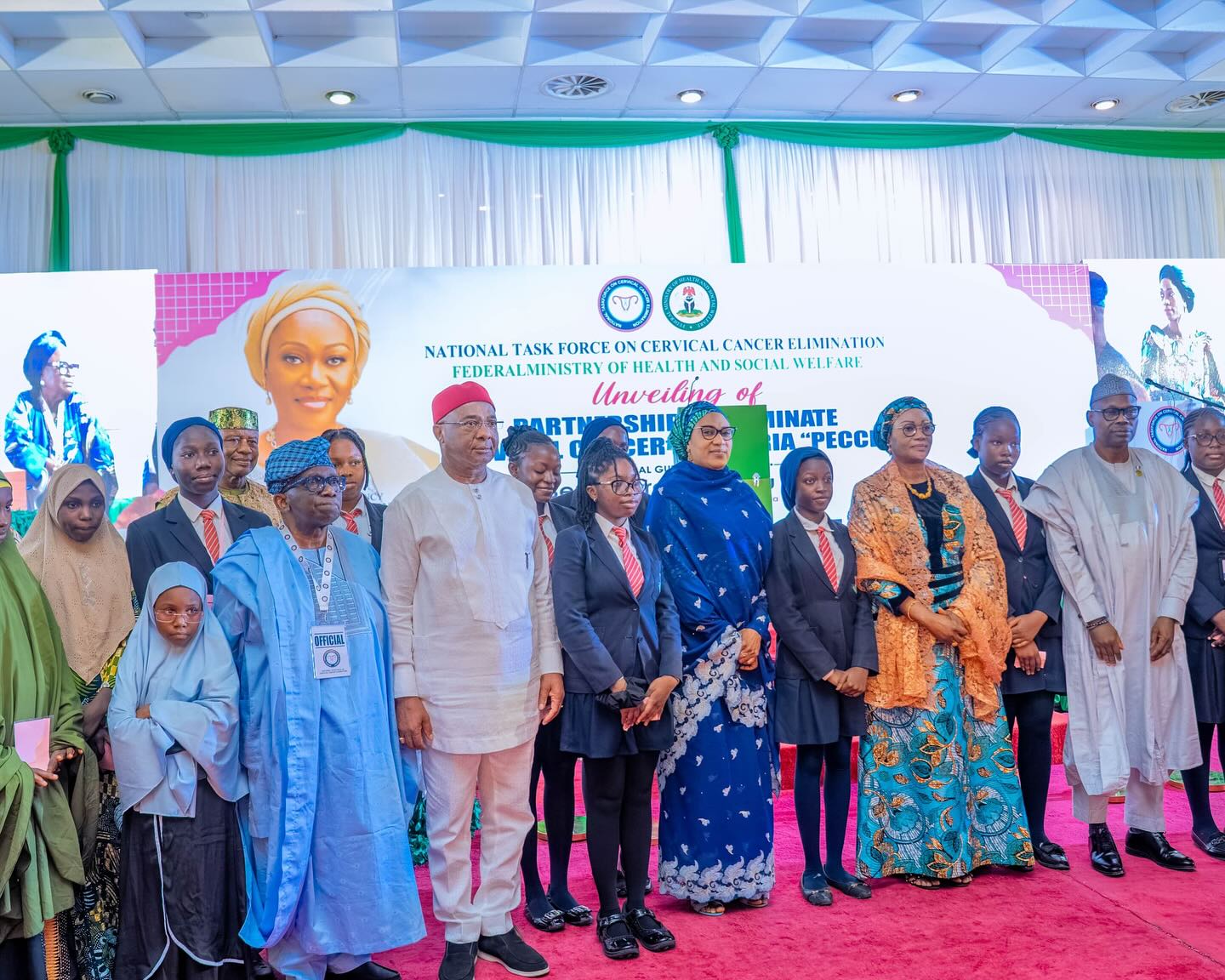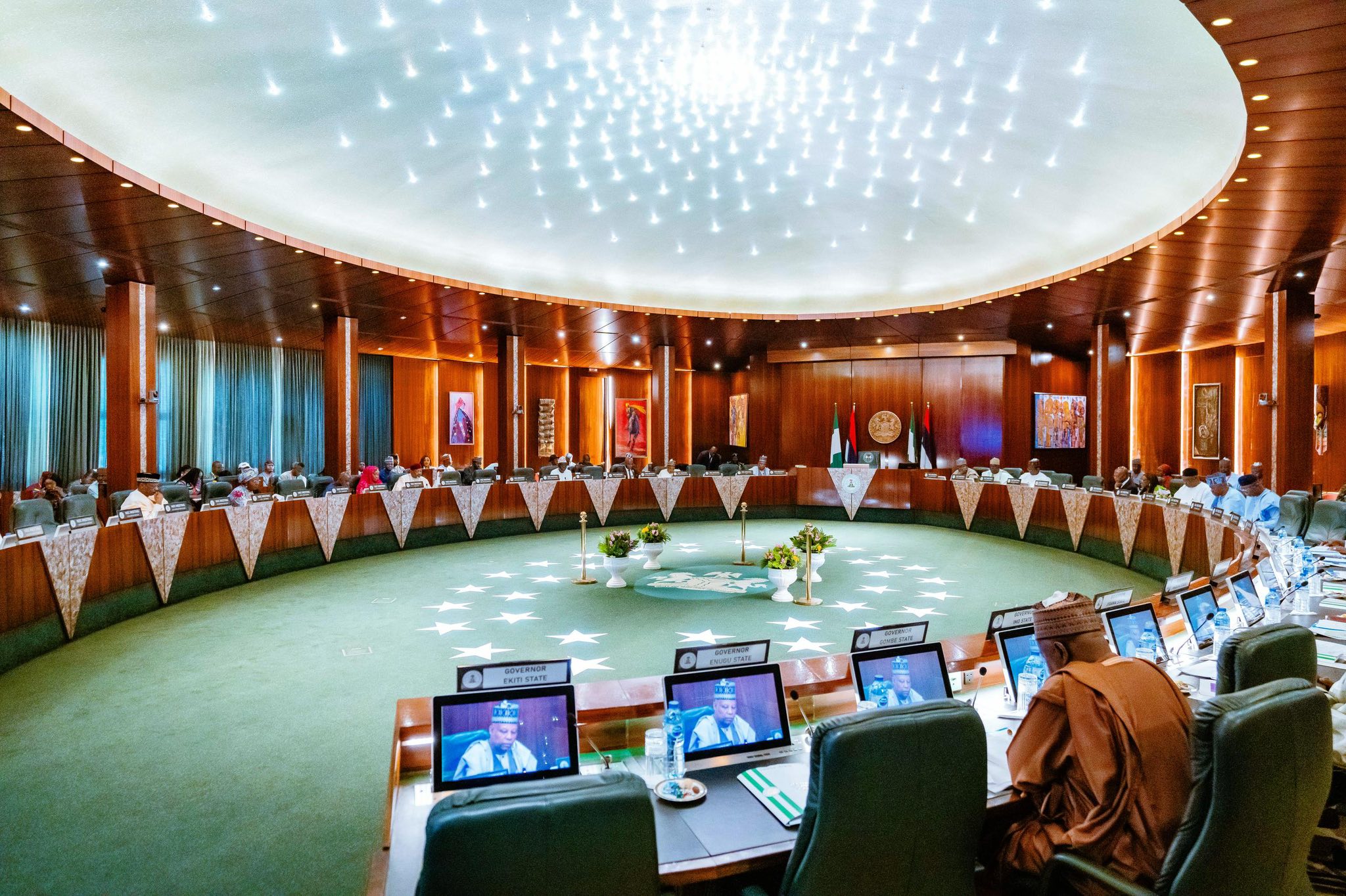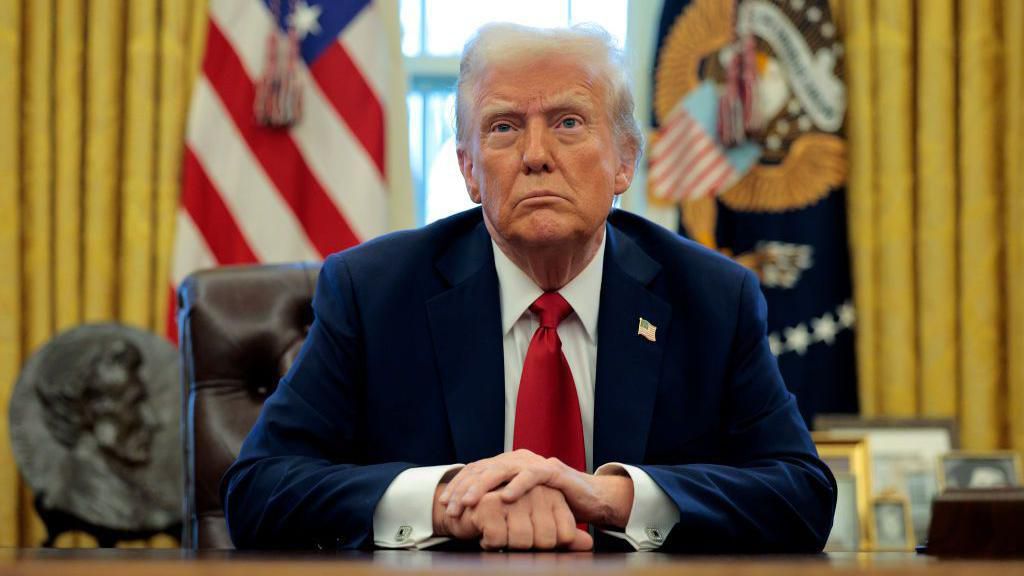Multi-Stakeholder Efforts to Eliminate Cervical Cancer in Nigeria

Nigeria has officially launched the Partnership to Eliminate Cervical Cancer in Nigeria (PECCiN), a significant national initiative spearheaded by the First Lady, Senator Oluremi Tinubu. The unveiling ceremony took place at the State House in Abuja, marking a concerted effort to accelerate Nigeria's achievement of the World Health Organisation’s (WHO) 90-70-90 targets for cervical cancer elimination by 2030. This initiative aligns with President Bola Tinubu’s Renewed Hope Agenda, which prioritizes the well-being of all Nigerians, particularly women.
Cervical cancer poses a substantial public health challenge in Nigeria. It is the second most common cancer among women in the country, despite being largely preventable. According to Prof. Isaac Adewole, Chairman of the National Task Force on Cervical Cancer Elimination (NTF-CCE), approximately 60 million Nigerian women are at risk of developing the disease, and an estimated 22 women die daily from it. Furthermore, reports indicate nearly 100,000 new cases of cervical cancer occur annually in Nigeria.
The PECCiN initiative, developed by the NTF-CCE, outlines a comprehensive strategy requiring an estimated N2.2 trillion for implementation between 2026 and 2030. Prof. Adewole detailed that these interventions are categorized into primary prevention, secondary prevention, and tertiary treatment. The primary prevention component, focusing on Human Papillomavirus (HPV) vaccination, is projected to cost N426.28 billion, including N387.52 billion for direct implementation and additional administrative costs. Secondary prevention, involving cervical cancer screening for 14.4 million women, is estimated at N351 billion. Tertiary treatment for nearly 300,000 women who will require care for invasive cervical cancer during this period is projected to cost approximately N1.42 trillion, with an anticipated drop in cost per patient from N8.7 million in 2026 to N4.1 million by 2030. Prof. Adewole emphasized the high return on investment for these interventions, urging commitment and support despite other competing national priorities.
A cornerstone of the elimination strategy is the HPV vaccination program. Muyi Aina, Executive Director of the National Primary Health Care Development Agency (NPHCDA), reported that since the federal government launched the HPV vaccine campaign on October 24, 2023, an unprecedented 14 million girls have already received the vaccine. The First Lady also highlighted this success, noting that over 12 million girls were protected within the first nine months of the campaign. The WHO Director-General, Dr. Tedros Ghebreyesus, acknowledged even broader progress, stating that nearly 17 million girls in Nigeria have received the HPV vaccine. The NPHCDA has incorporated the HPV vaccine into the routine immunisation schedule, and primary healthcare centres are being revitalised to support service delivery.
During the PECCiN launch, First Lady Oluremi Tinubu made a passionate appeal to development partners, the private sector, non-governmental organizations, and academic institutions to commit their resources, expertise, and innovation to the campaign. She announced that her pet project, the Renewed Hope Initiative (RHI), has already committed ₦1 billion to support the national effort. Mrs. Tinubu stressed that with collaborative action, Nigeria could prevent at least 60,000 deaths from cervical cancer in the next five years alone. She also called on state and local governments, healthcare professionals, schools, and religious and traditional leaders to become active champions for women’s health and immunization.
The Nigeria Governors’ Forum (NGF) has fully endorsed PECCiN. Governor Abdulrahman Abdulrazaq of Kwara State, Chairman of the NGF, represented by Governor Hope Uzodinma of Imo State, affirmed the collective commitment of all 36 state governors. They pledged to fast-track policy adoption at the state level, allocate domestic funding for cervical cancer prevention and treatment programs, and strengthen primary healthcare systems to ensure equitable service delivery, particularly in rural and underserved communities. The governors also committed to collaborating with partners to improve access to screening, vaccines, and education.
International partners have lauded Nigeria's strengthened commitment. WHO Director-General Dr. Tedros Ghebreyesus praised the First Lady’s leadership and highlighted Nigeria's significant role in global cervical cancer elimination efforts, noting that Nigeria has supported WHO’s call for elimination since 2018 and co-led the establishment of World Cervical Cancer Elimination Day on November 17. Zainab Shinkafi-Bagadu, Vice Chairman of the NTF-CCE, remarked on the renewed commitment and increased investment in Nigeria's health sector, including the establishment of six new health facilities over the past two years. She noted that these efforts are aligning Nigeria with other leading African countries in the fight against cervical cancer.
The launch of PECCiN represents a critical milestone in Nigeria's fight against cervical cancer, signaling high-level political will and a multi-sectoral approach to marshal resources and partnerships. The overarching goal is to protect women and girls nationwide, ensuring that every eligible adolescent is vaccinated against HPV and every woman is financially protected throughout her life, ultimately aiming for a future where no Nigerian woman dies from this preventable disease.











